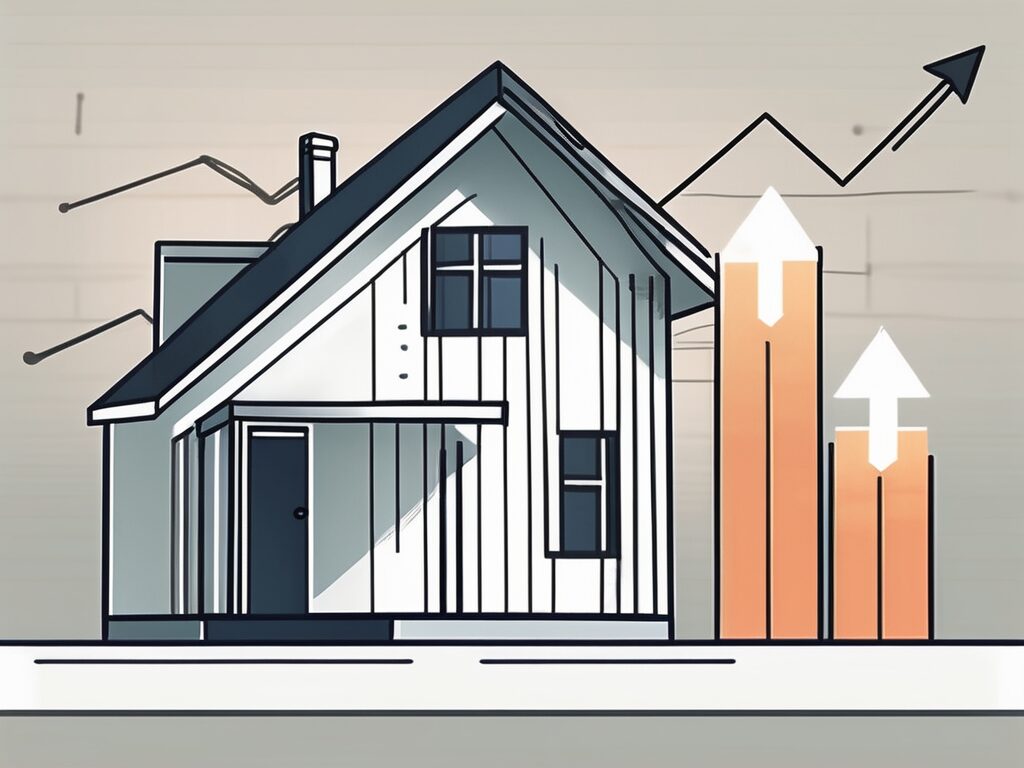
Agent A-Team or Solo Superhero? Finding the Right Real Estate Partner for Your Selling Journey in West Palm Beach Florida
Are you considering selling your property in West Palm Beach,…
January 28, 2024
Buying a home is an exciting but challenging process. In today’s competitive real estate market, it is not uncommon for buyers to find themselves in a bidding war for their dream home. To secure the home of your dreams, you need to be prepared to make an offer above the asking price. In this article, we will discuss seven proven strategies to determine your offer above the asking price, helping you increase your chances of success.
When it comes to making a winning offer, there are several strategies you can employ to stand out from the competition. Let’s explore these strategies in detail.
Before making an offer above the asking price, it is essential to calculate the right offer amount. This involves thoroughly researching the local real estate market and understanding the comparable home prices in the area. By analyzing recent sales data and consulting with a trusted real estate agent, you can determine a fair and competitive offer amount.
When calculating the right offer amount, it’s important to consider various factors. For instance, you should take into account the condition of the property, any recent renovations or upgrades, and the overall demand for homes in the neighborhood. By considering these factors, you can ensure that your offer is not only competitive but also reflects the true value of the property.
Additionally, it’s worth noting that the right offer amount may not always be the highest offer. Sellers often consider other factors, such as the buyer’s financial stability and the terms of the offer, when making their decision. Therefore, it’s crucial to strike a balance between offering a competitive price and presenting yourself as a reliable and desirable buyer.
In a competitive market, having your financing in order is crucial. Before making an offer, it’s important to ensure you have pre-approval from a lender. This will demonstrate to sellers that you are a serious buyer and can afford the home. Additionally, consider offering a larger down payment or providing proof of funds to strengthen your offer.
Securing financing for your dream home involves several steps. First, you need to gather all the necessary financial documents, such as tax returns, bank statements, and proof of income. This will help the lender assess your financial situation and determine the loan amount you qualify for.
Next, you’ll need to shop around for the best mortgage rates and terms. It’s advisable to get quotes from multiple lenders and compare their offers to find the most favorable option. Remember to consider not only the interest rate but also the closing costs and any additional fees associated with the loan.
Once you have chosen a lender, you can start the pre-approval process. This involves submitting your financial documents to the lender for review. If everything checks out, you will receive a pre-approval letter, which you can present to sellers to show that you are a qualified buyer.
By taking these steps to secure financing, you can position yourself as a strong buyer and increase your chances of having your offer accepted.
To determine your offer above the asking price, it’s crucial to have a thorough understanding of the current real estate market. Is it a buyer’s market or a seller’s market? Are home prices rising or falling? By staying up to date with market trends, you can make an informed decision on how much to offer.
Understanding the current real estate market involves conducting market research and analyzing relevant data. You can start by looking at recent sales in the area and comparing the selling prices to the listing prices. This will give you an idea of how much properties are selling for and whether there is a trend of homes selling above the asking price.
In addition to studying sales data, it’s also important to consider other factors that can impact the market. For example, changes in interest rates, government policies, and economic conditions can all influence the real estate market. By keeping an eye on these factors, you can anticipate market fluctuations and adjust your offer accordingly.
Furthermore, it’s beneficial to consult with a real estate agent who specializes in the local market. They can provide valuable insights and help you navigate the complexities of the current real estate landscape. Their expertise and knowledge can be instrumental in making a winning offer.
While it may be tempting to stretch your budget to secure your dream home, it’s important to set a price limit and stick to it. Determine your maximum budget based on your financial situation, and consider the additional costs associated with buying a home, such as closing costs and potential repairs or renovations.
When shopping within your budget, it’s essential to be realistic about what you can afford. Consider your monthly income, expenses, and other financial obligations to determine a comfortable price range. Remember that buying a home is a long-term commitment, and you don’t want to find yourself financially strained or house poor.
In addition to the purchase price, don’t forget to factor in other costs, such as property taxes, homeowners insurance, and maintenance expenses. These ongoing expenses can add up and impact your overall affordability.
By shopping within your budget, you can ensure that you are making a responsible and sustainable offer. It’s better to find a home that fits comfortably within your financial means than to overextend yourself and risk financial hardship in the future.
When making an offer above the asking price, it’s important to consider factors beyond price that can influence sellers. For example, if the sellers are in a hurry to move, they may prioritize a quick closing date over a higher offer. Additionally, consider including personalized touches in your offer, such as a heartfelt letter explaining why you love the home.
Understanding the motivations and priorities of the sellers can give you an advantage when crafting your offer. For instance, if the sellers have already purchased another home and need to sell quickly, you can structure your offer with a shorter closing period to accommodate their needs.
Furthermore, including a personal letter with your offer can help you establish an emotional connection with the sellers. Expressing your admiration for their home and sharing your plans for the property can make your offer more memorable and appealing. Sellers often appreciate knowing that their home will be cherished by its new owners.
By considering these factors and tailoring your offer accordingly, you can differentiate yourself from other buyers and increase the likelihood of your offer being accepted.
Your real estate agent is your ally in the home-buying process. Collaborate with your agent to craft the perfect offer. They can provide valuable insights into the local market, help you draft a compelling offer letter, and negotiate on your behalf. By working together, you can increase your chances of success.
When collaborating with your agent, it’s important to communicate openly and share your preferences and priorities. Let them know what you are looking for in a home and what you are willing to compromise on. This will help them narrow down the options and present you with properties that align with your needs.
Once you’ve found a home you’re interested in, your agent can guide you through the offer process. They will help you determine the appropriate offer amount, draft the offer letter, and submit it to the seller’s agent. They can also negotiate with the seller on your behalf, ensuring that your interests are represented.
By leveraging the expertise and experience of your agent, you can navigate the complexities of the offer process with confidence and increase your chances of making a winning offer.
When making an offer above the asking price, it’s essential to anticipate potential appraisal challenges. If the appraised value of the home is lower than your offer, you may need to bridge the gap by paying the difference in cash or renegotiating with the seller. Discuss this possibility with your agent beforehand to come up with a plan.
Appraisal challenges can arise when the appraiser determines that the value of the home is lower than the agreed-upon purchase price. This can happen if there are limited comparable sales in the area or if the appraiser has a different opinion of the property’s value.
If you encounter an appraisal challenge, it’s important to stay calm and work with your agent to find a solution. One option is to pay the difference between the appraised value and the purchase price in cash. This can help bridge the gap and ensure that the transaction proceeds as planned.
Alternatively, you can renegotiate with the seller to lower the purchase price to match the appraised value. This may involve reopening negotiations and reaching a new agreement that both parties are comfortable with.
By discussing potential appraisal challenges with your agent beforehand, you can be prepared for any contingencies and navigate the situation effectively.
While making an offer above the asking price may seem expensive, there are insider tips you can utilize to save money when buying a home. Let’s explore some of these tips below.
When conducting a home inspection, it’s important to pay attention to both the visible and hidden aspects of the property. A professional inspector will thoroughly examine the structural integrity, electrical systems, plumbing, and other essential components of the house. By uncovering any potential issues, you can have a better understanding of the home’s true value and negotiate accordingly.
When it comes to financing your home purchase, it’s crucial to compare offers from multiple lenders. Different lenders may have varying interest rates, fees, and repayment terms. By taking the time to shop around and compare options, you can find the most favorable financing terms that align with your financial goals and save a significant amount of money in the long run.
When finalizing the purchase of a home, closing costs can be a substantial financial burden. However, these costs are often negotiable. By engaging in open discussions with the seller, you may be able to reach an agreement where they cover a portion or even all of the closing costs. Additionally, some lenders offer lower closing costs as part of their loan packages, so it’s worth exploring different options to find the most cost-effective solution.
If you’re willing to invest time and effort into renovations, purchasing a fixer-upper can be a smart financial move. By focusing on homes that require cosmetic updates or minor repairs, you can often secure a property at a lower price. With some DIY skills or the help of professionals, you can transform the house into your dream home while potentially increasing its value significantly.
Real estate markets are constantly evolving, and identifying up-and-coming neighborhoods can be a lucrative strategy. These areas may offer lower home prices compared to more established neighborhoods, but they often have the potential for significant appreciation in the future. By conducting thorough research and consulting with a knowledgeable real estate agent, you can pinpoint these hidden gems and make a wise investment that saves you money in the long term.
By utilizing these insider tips and strategies for making a winning offer, you can navigate the competitive real estate market and increase your chances of securing your dream home. Remember to stay informed, work closely with your real estate agent, and be prepared to make an offer above the asking price.
Buying a home is a significant investment, and it’s essential to approach it with a well-thought-out strategy. By combining market knowledge, financial preparedness, and insider tips, you can determine your offer above the asking price confidently. With perseverance and the right approach, you can secure the home of your dreams.